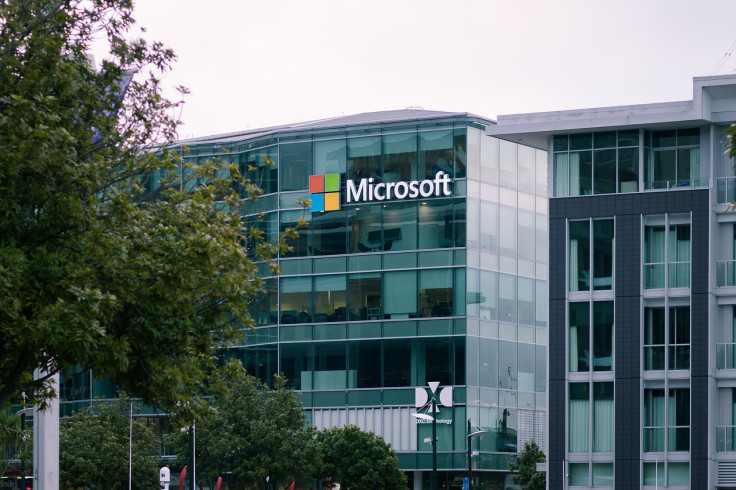Microsoft ignored OpenAI's warning about launching unfinished Bing Chat service: report
It looks like generative AI has created tension between Microsoft and ChatGPT creator OpenAI.

Microsoft reportedly ignored the warning of OpenAI and went on to launch the Bing chat service before it was thoroughly developed. The American tech giant recently unveiled an upgraded version of its Bing search engine with AI chat support.
Aside from this, Microsoft launched an upgraded version of its Edge browser. The company claimed the new Bing AI chat-backed Edge browser will deliver an unparalleled browsing experience. In fact, Microsoft even made its Bing Chat available on third-party browsers including Google Chrome and Apple Safari.
Much to the company's chagrin, the Bing chat service failed to garner popularity among users due to its immaturity. Moreover, the AI bot sparked controversy and disarray shortly after its debut. Reportedly, Microsoft's Edge browser was sharing details about the sites a user visits with the Bing search engine.
Microsoft has secretly revealed that the technology behind ChatGPT Plus or ChatGPT-4, GPT-4, also powers their Bing AI or Bing Chat service. The use of Bing AI is free.
— Startup Pakistan (@PakStartup) April 10, 2023
Here's How: https://t.co/G8MHcZoNPP pic.twitter.com/xFJpwQQWw6
Now, a Wall Street Journal report suggests Microsoft Bing uses the unreleased GPT-4 model to provide chat. A separate report by IT Home indicates OpenAI warned Microsoft before the company released the Bing AI chatbot. The report suggests Microsoft ignored OpenAI's warnings.
Microsoft's new Bing Chat: How it links with OpenAI
Microsoft's new Bing chat service is based on an upgraded version of the same AI tech that supports ChatGPT. The radically overhauled Bing search shows traditional search results. Aside from this, it displays a chat interface along with AI annotations.
Furthermore, Microsoft has confirmed that the new Bing will be live "for desktop limited preview." While users can sign up and get full access in the future, they can try a few queries with the limited preview. It is no secret that Microsoft teamed up with OpenAI, the company behind ChatGPT, to develop the new Bing chat service.
1. Bing
— Anurag Agarwal (@Anurag_Creates) June 9, 2023
Bing offers ChatGPT-4 for free!
Just go to Bing Chat and start typing your prompts
Ask questions, generate images & morepic.twitter.com/MQ9uwqXSwB
ChatGPT played a vital role in building people's interest in AI text generation. Understandably, Microsoft wants to cash in on this and incorporate OpenAI's GPT-3.5 language techs into its Bing search engine to further enhance its capabilities. Surprisingly, Microsoft decided not to use the widely popular ChatGPT tool itself.
Unfinished Bing chat service
Regrettably, the newly released Bing chat service turned out to be immature. During the first week, Bing Chat test users found that the search engine didn't respond correctly when chats got too long. So, Microsoft decided to restrict users to five inputs per chat and 50 messages per day.
Moreover, Microsoft programmed Bing chat to avoid talking about itself or how it feels. In addition to this, the company hugely limited the chatbot's ability to have existential meltdowns, threaten its users, or show its love for them. The Wall Street Journal report highlights tensions between the ChatGPT creator and Microsoft.
It is worth noting that OpenAI and Microsoft are not just partners, but also rivals in the field of artificial intelligence. OpenAI gets tech licenses and cloud services from Microsoft. Also, Microsoft uses OpenAI's techs and models in several products including Windows, Bing, Office, and Azure.
OpenAI recently developed its own API services along with a myriad of other products that attracted Microsoft's potential customers. Moreover, OpenAI's ChatGPT, which made its debut last year, competes with Microsoft's Bing chatbots. In a recently concluded interview, Microsoft CEO Satya Nadella shed some light on Microsoft's rivalry with OpenAI.
"I think OpenAI is going after the same thing as we are," the top executive pointed out. "So I don't want to train five different base models, I want one base and let it be a platform effect. So we partnered. They bet on us, we bet on them." However, Nadella remained mum on Microsoft's plan to acquire OpenAI.
Microsoft does not wholly own OpenAI, but it can influence the AI company to a certain extent. The company wants to incorporate OpenAI's GPT-3.5 language techs into its search engine and enhance its capabilities. Nevertheless, the new Bing chat service still has a long way to go before it can lock horns with other more efficient chat services.
© Copyright IBTimes 2025. All rights reserved.






















